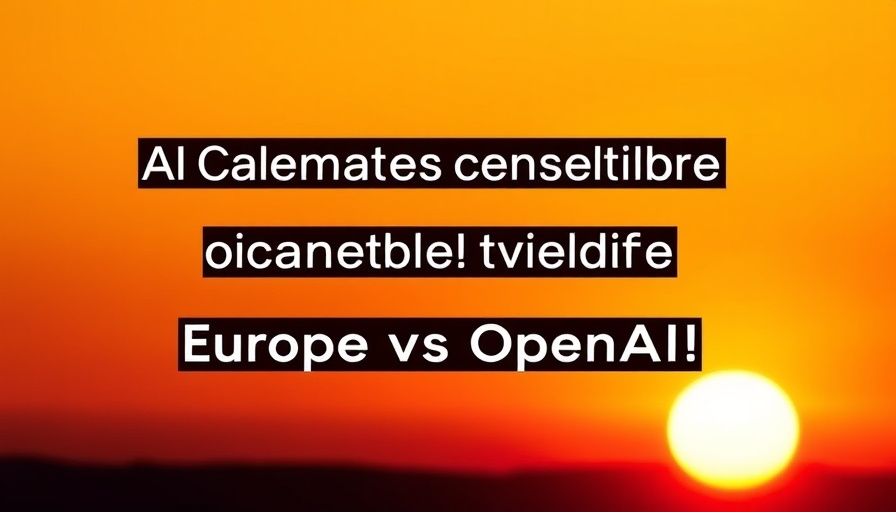
Understanding Magistral's Breakthrough and Its Implications
In a remarkable turn of events, the European company Magistral has achieved a groundbreaking 73.6% accuracy in natural language processing tasks, positioning itself as a formidable competitor against OpenAI. This milestone not only showcases the technological advances made in AI but also raises critical questions about the broader societal implications of such innovations. With AI's cultural influence permeating various sectors, it is crucial to assess how these developments will shape societal dynamics moving forward.
The Cultural Impact of AI Advancements
As AI technologies evolve, their integration into daily life becomes increasingly evident. Magistral's achievement is not just a technological feat; it represents a shift in how artificial intelligence is perceived across cultures. In urban centers, particularly in policy-driven regions, decisions made by AI systems could influence everything from educational frameworks to job markets. The accuracy of AI tools like Magistral has the potential to drive significant societal changes, fostering greater reliance on machine learning in public policy and social governance.
Ethics of AI in Society
However, with advancements come ethical concerns. as stakeholders grapple with the AI ethical implications, questions arise regarding transparency, accountability, and bias. Who holds the responsibility when an AI system makes a flawed recommendation based on data? Furthermore, the ability of AI to automate jobs creates tension around workforce sustainability. Policymakers and sociologists must collaborate to forge frameworks that ensure AI serves as a tool for social good, rather than exacerbating inequalities.
A Future Shaped by AI
Looking ahead, the trajectory of AI technology will undoubtedly influence societal frameworks, labor markets, and educational paradigms. It's imperative that this evolution occurs alongside proactive measures to address potential risks associated with job automation and systemic biases within AI frameworks. As the landscape evolves, ensuring that AI contributes to human rights advocacy and equitable policy changes will be vital.
Conclusion: Embracing Change Responsibly
As we witness the heightening capabilities of AI, with Magistral at the forefront, it becomes imperative to engage in dialogues around its impacts on society. Stakeholders must remain vigilant in considering both the positive transformations and potential setbacks this technology ushers in. Keeping informed about advancements like these can empower individuals and communities to leverage AI for the betterment of society, while advocating for ethical guidelines that protect vulnerable populations.
 Add Row
Add Row  Add
Add 




 Add Row
Add Row  Add
Add 



Write A Comment